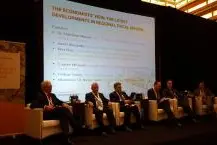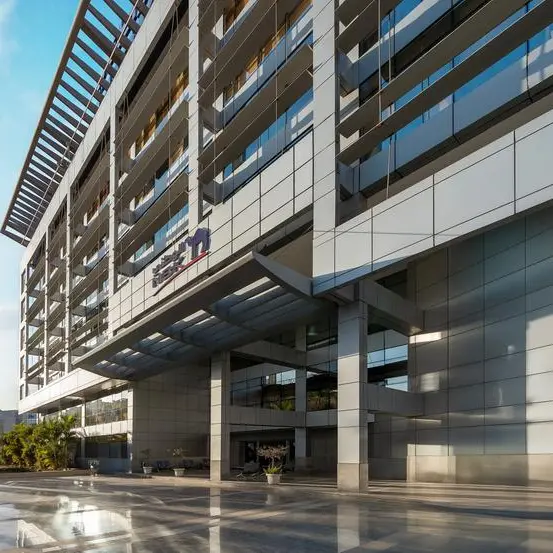PHOTO
- Implementation of taxes should be accompanied by revenue protection
- There is a need to establish a GCC wide track and trace systems
- Developing domestic systems & regional coordination will be key themes for GCC governments
- GCC companies are currently looking at impact analysis with an emphasis on efficiency
- Exchange of tax information will help create economic opportunities within the GCC
DUBAI, UNITED ARAB EMIRATES: 26 April 2016
Thomson Reuters, the world's leading source of intelligent information for businesses and professionals, today concluded a seminar on MENA's Evolving Tax Landscape in Dubai, United Arab Emirates.
The seminar follows the recent announcements by GCC governments to introduce VAT legislation in the next few years. Speaking about the impacts of budget deficits following the precipitous drop of oil prices, Nasser Saidi, President, Nasser Saidi & Associates, pointed out that Custom tax can be replaced with a specific excise tax structure.
"Newly introduced fees in Bahrain and Saudi Arabia can be migrated away from custom based to a specific excise tax. New tax structures should be harmonized, coordinated and synchronized across the GCC in line with requirements of the GCC customs union. Furthermore, new tax structures require building tax capacity and a new revenue administration separate from customers and under the authority of Ministries of Finance. Implementation of taxes needs to be accompanied by revenue protection and anti-smuggling measures. There is a need to establish a GCC wide track and trace systems through implementing open standards which will enable information sharing across the GCC," he noted.
Dr. Ehtisham Ahmad - Senior Fellow, University of Bonn and London School of Economics, noted that the basic custom tariffs were debated in the past few years by regional governments. "The issue of cross border transactions was one of the challenges that emerged when this was first discussed. In respect to the UAE, Customs could be introduced on a federal level. There are special conditions on how taxation will function in the UAE as the country is the only federation in the GCC," he added.
Mr. Ahmad explained that taxes affect prices and prices affect households. "Therefore, we will have more measurement on the impact of tax on households in the future. Furthermore, the linkage between a tax package and a country growth strategy is key aspect that governments should consider. The challenge in the Arab region is creating jobs for the young population and maintaining sustainable development. This raises a question on the potential impact on the private sector's role in creating jobs," he said.
Mario Mansour - Deputy Chief, Tax Policy Division, International Monetary Fund (IMF), said: "Decline in commodity prices had little impact on revenue in non-resource MENA oil importers. Furthermore, revenue loss in MENA is estimated at 12 % of 2015 GDP which totals to US$ 330 billion, of which US$ 175 billion in GCC. Tax revenue are negligible in GCC, Lower than non-tax revenue. Coordination of introduction of broad-base taxes with non-tax sources and customs duties is key to successful reforms."
"How do we treat government as a consumer? We don't want to see VAT impacting the oil sector and each country will have to decide on how to deal with the introduction of taxation in the oil sector. Most international companies in the region are already familiar with VAT implementation. The challenge is really for the mid-size local companies across GCC states," he added.
Justin Alexander - Economic Advisor, Ministry of Finance, Qatar, pointed out that the measures announced yesterday in Saudi will impact reform across the region. "Qatar has traditionally used debt finance and might continue to raise capital through debt to address the deficits challenges. Developing domestic systems and regional coordination will be key themes for GCC governments to address in the short term," he said.
Bert Brys - Head of the Tax Policy Unit, Centre for Tax Policy and Administration, Organisation for Economic Co-operation and Development (OECD), noted that companies across the region are currently looking at impact analysis with an emphasis on efficiency. "Governments will have to raise more awareness and intensify communications. Cross border transactions is now a pressing theme and will continue to be debated by regional governments. Fiscal reform has become a requirement for regional governments that are looking to better position their economies on the global map," he added
Eugene McQuaid - Strategic Advisor, International Development Ireland, Saudi Arabia, spoke about the Saudi national transformation plan. "Today, we have an aspirational document with substantial content. The implementation program will be released soon and it is evident that all traditional prime ministries are already aligned with the strategic plans of the vision," he said.
Finbarr Sexton - Partner, Ernst & Young Middle East, concluded: "VAT is the first step in the right direction. It is important that good technology IT systems are in place to introduce taxation. Exchange of tax information will help create opportunities. The VAT guidelines will have a special focus on services given that taxation on services is more complex as opposed to goods."
Pierre Arman, Thomson Reutrers, said: "Technology always plays a key role in any tax regime around the world both on government and corporate sides - For the GCC region and the introduction of VAT in 2018, it appears clear that businesses have to get their core accounting systems ready for tax as a first phase. They should also consider wider implications such as document retention for audit purposes and VAT management technology to help them produce and e-file their VAT return in an automated and streamlined manner."
-Ends-
About Thomson Reuters
Thomson Reuters is the world's leading source of intelligent information for businesses and professionals. We combine industry expertise with innovative technology to deliver critical information to leading decision makers in the financial and risk, legal, tax and accounting, intellectual property and science and media markets, powered by the world's most trusted news organization. Thomson Reuters shares are listed on the Toronto and New York Stock Exchanges (symbol: TRI). For more information, go to www.thomsonreuters.com.
CONTACT
Tarek Fleihan
Head, Corporate Communications
Middle East, Africa, & Russia / CIS
Thomson Reuters
+97144536527
tarek.fleihan@tr.com
© Press Release 2016




















